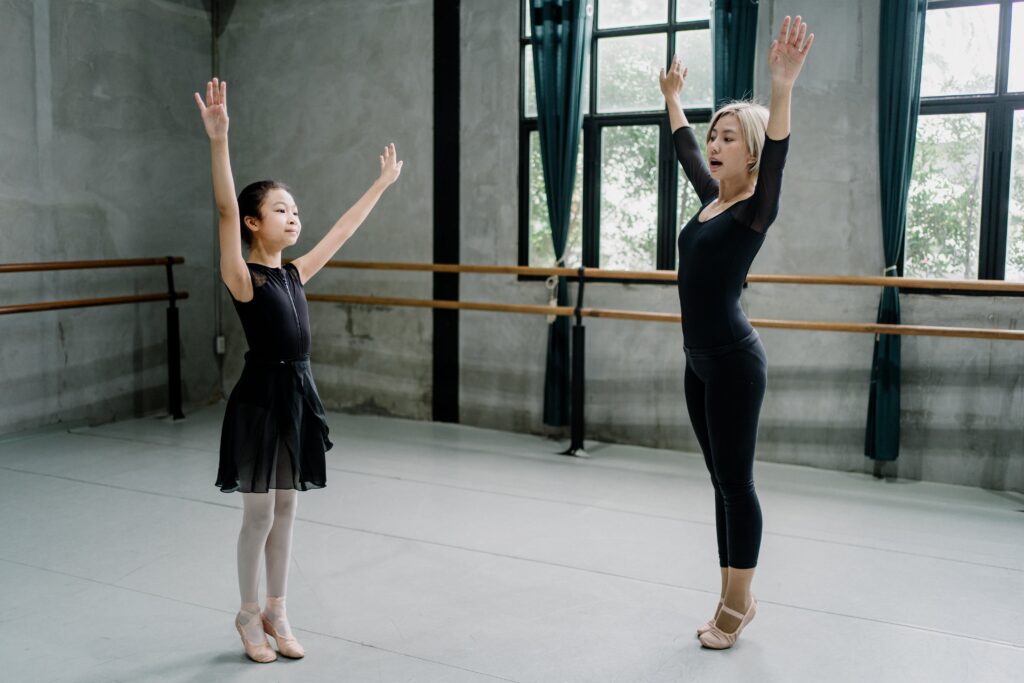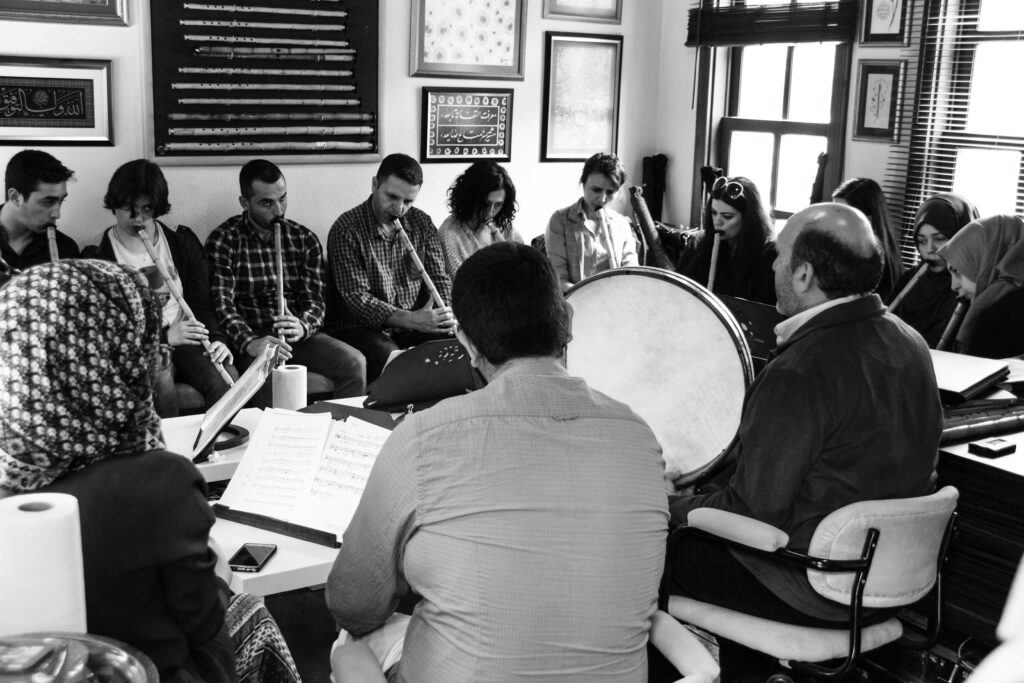The Performing Arts Degree: Stages of Brilliance
In a world where creativity knows no bounds, a Performing Arts Degree shines as a beacon for aspiring artists. Whether you’re destined for the spotlight, yearning to choreograph the next showstopper, or dreaming of directing your own cinematic masterpiece, a Performing Arts degree might just be your ticket to an exciting career in the limelight.
Get ready to explore the magic of the stage, the power of storytelling through movement and emotion, and the transformative journey that comes with honing your craft in this dynamic and vibrant field. So, grab your virtual front-row seat as we unravel the curtain on what makes a Performing Arts degree not just a qualification but a gateway to a world where every performance is a chance to captivate, inspire, and leave a lasting impression.
What is Performing Arts?

Performing Arts encapsulate various forms of artistic expression brought to life through performance. It is a dynamic liberal arts and humanities field of creative expression where artists captivate audiences through live performances. It encompasses a diverse range of disciplines, each offering a unique form of artistic storytelling. Here are some prime examples of Performing Arts:
Theatre
Theatre, often considered the heartbeat of performing arts, brings stories to life on stage. Actors embody characters, conveying emotions and narratives through dialogues and actions. From classic plays to contemporary productions, theatre is a powerful medium for human connection.
Music
Music transcends language, speaking directly to the soul. It encompasses a rich tapestry of sounds, melodies, and harmonies. Musicians, instrumentalists, and vocalists collaborate to create symphonies, songs, and compositions that evoke emotions and stir the imagination.
Dance
Dance is the art of movement, where bodies become instruments of expression. Dancers master various styles, from classical ballet to modern contemporary, conveying emotions, stories, and cultural traditions through choreography and physicality.
Opera
Opera marries the beauty of music with the depth of storytelling. It features powerful vocal performances accompanied by orchestral arrangements. Opera productions often explore grand themes, blending music, drama, and visual spectacle.
Circus Arts
Circus arts combine acrobatics, juggling, clowning, and aerial performances into a mesmerizing spectacle. These skilled performers defy gravity, showcasing agility, coordination, and artistic flair.
Performance Art
Performance art blurs the lines between visual art and live action. Artists engage in unscripted, often provocative, acts or interactive experiences that challenge societal norms and provoke thought.
Puppetry
Puppetry brings inanimate objects to life, creating characters that convey emotions and stories. Puppeteers skillfully manipulate puppets, creating enchanting performances that can be both whimsical and profound.
Stand-Up Comedy
Comedians use wit, humor, and timing to entertain and provoke laughter. They often draw on personal experiences, social commentary, and observational humor to connect with audiences.
Major Types of Performing Arts

The world of performing arts is a captivating realm where creativity knows no bounds. Within this vibrant domain, several major disciplines stand out, each offering a unique form of artistic expression. The key facets of Performing Arts like Drama, Music, and Dance and the skills, techniques, and career opportunities that define these captivating forms of performance art.
Drama Degree
Drama is the art of storytelling through live performance, where actors embody characters and convey narratives through dialogue, movement, and emotion. It encompasses various genres, from classical tragedies to contemporary plays.
Skills and Techniques
Actors develop skills in characterization, voice projection, stage presence, and script analysis. They work on emotional range, physicality, and the ability to inhabit diverse roles.
Career Opportunities
Actor/Actress
Portray characters in stage, film, or television productions. They earn $ 41K-76K on average in the US as of September 28, 2023.

Director
Guides actors and shapes the overall vision of a theatrical production. They earn $ $131K-$226K on average in the US as of October 20, 2023.

Drama Teacher
Educate aspiring actors in schools, drama schools, or community programs. They earn $ $38K-$60K on average in the US as of September 28, 2023.

Music
Music is the art of creating harmonious sounds and melodies. It encompasses a wide range of genres and styles, including classical, jazz, rock, pop, and more.
Skills and Techniques
Musicians develop proficiency in playing instruments, reading sheet music, composing, and understanding music theory. Vocalists focus on techniques like breath control, pitch, and interpretation.
Career Opportunities
Musician
Perform solo, in ensembles, or as part of orchestras, bands, or choirs. Musicians earn $40K – $72K per year on average as of September 27, 2023.


Composer
Create original musical compositions for various contexts, such as film, television, or concerts. Composers earn $55K – $95K per year on average as of September 27, 2023.

Music Teacher
Teach music theory, instrument proficiency, or vocal techniques in schools or private lessons. earn $43K – $70K per year on average as of October 17, 2023.

Dance
Dance is the art of movement, conveying emotions, stories, and cultural traditions through choreographed sequences. It encompasses a wide range of styles, from ballet to hip-hop.
Skills and Techniques
Dancers develop agility, flexibility, coordination, and mastery of specific dance techniques. They also learn choreography and stage presence.
Career Opportunities
Professional Dancer
Perform in dance companies, theaters, music videos, and other live events. Professional dancers make $41K – $68K per year on average as of September 27, 2023.

Choreographer
Create original dance routines for performances, films, or music videos. Choreographers make around $41K – $68K per year on average as of September 27, 2023.

Dance Instructor
Teach dance techniques and choreography in dance schools, studios, or community programs. make around $34K – $59K per year on average as of September 27, 2023.

These degrees of performing arts offer distinct avenues for artistic expression, each requiring specialized skills, training, and a deep passion for the craft. Embracing any of these disciplines can lead to a fulfilling and impactful career in the world of performing arts.

What Levels of Education are in a Performing Arts Degree?
Embarking on a journey in the performing arts often involves structured educational pathways. In this section, we will delve into the various levels of education available in this dynamic field.
Associate Degree
An Associate Degree in Performing Arts provides a foundational understanding of the chosen discipline, whether in drama, music, or dance. It serves as a starting point for those seeking entry-level positions or considering further education.
Curriculum
Typically, this program includes introductory courses in the chosen art form, basic theory, and practical skills. It may also cover general education requirements.
Duration
Usually spans two years of full-time study.
Career Opportunities
You will have access to entry-level positions in related fields and a continued education for a more specialized focus.
Bachelor’s Degree
A Bachelor’s Degree in Performing Arts offers a more comprehensive and in-depth study of the chosen discipline. It provides a solid foundation for aspiring artists, allowing for greater specialization.
Curriculum
This program encompasses a broader range of courses, including advanced theory, and practical skills, and often includes performance opportunities. It may also incorporate general education requirements.
Duration
Typically spans four years of full-time study.
Career Opportunities
You will have access to Performance in professional settings, Teaching roles in community programs or private lessons, and Pursuit of further specialized education in Performing Arts.
Master’s Degree
A Master’s Degree in Performing Arts represents a higher level of expertise and specialization. It is suitable for individuals aiming for leadership roles, research opportunities, or advanced performance careers.
Curriculum
This program delves into advanced coursework, research projects, and performance opportunities. It may also include teaching or pedagogy components.
Duration
Usually requires one to three years of full-time study, depending on the program and specialization.
Career Opportunities
You will then have access to leadership roles in arts organizations, teaching positions in higher education, and research opportunities in the field.
Doctorate
A Doctorate in Performing Arts represents the pinnacle of academic achievement in this field. It is geared towards scholars, researchers, and those seeking to make significant contributions to the field through advanced research.
Curriculum
This program focuses heavily on original research, often resulting in a doctoral dissertation. It may also involve teaching responsibilities and participation in academic conferences.
Duration
Typically spans three to seven years, including research and dissertation work.
Career Opportunities
You will then have opportunities like tenured positions in academia or Research and publication in specialized areas of performing arts.
These levels of education in performing arts offer a progressive journey for aspiring artists, allowing them to refine their skills, specialize in their chosen discipline, and contribute to the rich tapestry of artistic expression.

Top 5 Best Performing Arts Academy or University
Top 1: New York University (NYU)
New York University (NYU) in New York, NY, ranked 30th in the 2019 U.S. News & World Report for national universities, offers a comprehensive array of performing arts programs. These programs are administered by the Steinhardt School of Culture, Education and Human Development and the Tisch School of the Arts. NYU requires auditions for entry into programs. Notable degrees include Bachelor of Music (B.M.), Bachelor of Fine Arts (BFA) in Drama, Master of Music (M.M.), and Doctor of Philosophy (Ph.D.) in Music.
Top 2: University of Michigan (UM)
At the University of Michigan (UM) in Ann Arbor, MI, which ranked 27th in the 2019 U.S. News & World Report, the School of Music, Theatre and Dance (SMTD) is renowned for producing graduates who have excelled at prestigious institutions like The Juilliard School and performed with renowned companies. UM offers an extensive range of programs in music, theatre, and dance. Notable degrees include B.M. in Performance, BFA in Musical Theatre, and Ph.D. in Composition and Music Theory.
Top 3: University of California, Los Angeles (UCLA)
The University of California, Los Angeles (UCLA) in Los Angeles, CA, tied for 19th place among U.S. News & World Report national universities in 2019. UCLA’s School of Theater, Film and Television offers majors in film and television and an undergraduate theater program. The Herb Alpert School of Music provides options like a music performance major and graduate performance degrees in classical instruments, voice, and conducting. Notable offerings also include MFA in Acting and Ph.D. in Theater and Performance Studies.
Top 4: University of Southern California (USC)
The University of Southern California (USC), located in Los Angeles, California, is a prestigious institution known for its outstanding programs in the performing arts. It offers a wide range of disciplines within the School of Dramatic Arts, Thornton School of Music, and the School of Cinematic Arts.
USC is renowned for producing graduates who have excelled in various facets of the entertainment industry, including film, television, theatre, and music. Notable programs include Bachelor of Fine Arts (BFA) in Acting, Bachelor of Music (B.M.) in Composition, and Master of Fine Arts (MFA) in Film Production. USC’s strong industry connections and vibrant arts community make it a prime choice for aspiring performing artists.
Top 5: Northwestern University (NU)
Northwestern University (NU), located in Evanston, Illinois, is a distinguished institution renowned for its excellence in performing arts education. NU’s Bienen School of Music and School of Communication offer a diverse range of programs in music, theatre, and related disciplines.
With a strong emphasis on both theory and practice, Northwestern’s performing arts programs equip students with the skills and knowledge needed to excel in the competitive world of entertainment.
Noteworthy programs include Bachelor of Music (B.M.) in Music Education, Bachelor of Arts (B.A.) in Theatre, and Master of Fine Arts (MFA) in Directing for Stage and Screen. NU’s commitment to artistic innovation and interdisciplinary collaboration sets it apart as a leading institution for aspiring performing artists.

Frequently Asked Questions
What qualifications do you need for performing arts?
While formal qualifications aren’t always obligatory in the performing arts sector, undertaking a college course or attaining a university degree can provide a distinct advantage. It can enhance your competitiveness and increase your likelihood of securing your desired role in the industry.
What are the branches of performing arts?
Performing arts encompass a wide array of disciplines, ranging from dance, music, opera, and theatre to magical acts, illusionism, mime, and spoken word performances. Additionally, it includes puppetry, circus arts, stand-up comedy, improv, professional wrestling, and performance art. Notably, there exists a unique form of fine art where artists present their work live before an audience.
What is a performing arts BA?
The Performance Arts course is a platform for venturing into innovative performance forms and cultural spaces. As a participant, you will hone your creative expression through the exploration of a diverse array of experimental performances spanning various art forms and cultural backgrounds.
Is performing arts the same as liberal arts?
No, performing arts and liberal arts are distinct. Performing arts focuses on creative disciplines like dance, music, and theater, while liberal arts encompasses a broader range of subjects including humanities, sciences, and social sciences.
Can you succeed in life working in the field of art?
Certainly, it is entirely feasible to make a livelihood as a painter. Both myself and numerous professional artist friends have achieved this. Nevertheless, sustaining a life solely through art is a challenge. As an artist, you are the originator of your work. However, in today’s competitive landscape, ambition, determination, and diligent effort are equally crucial for success.
If you want more content about arts, you can check out this video about the art degrees that are WORTH it:
